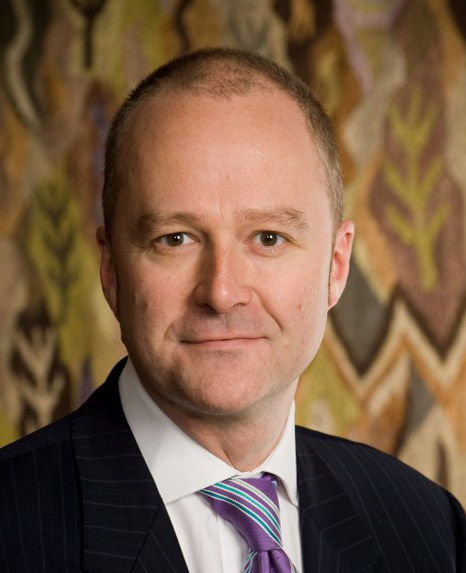Here, Andrew Dunn, Senior Publishing Editor for Royal Society Open Science, and the authors of the Perspective, explore the motivation for the article, which addresses a number of the challenges science and its communication currently face.

This week Royal Society Open Science published its first Perspective. Perspectives may be written by Fellows of the Royal Society, either as an individual effort, or as a collaboration among colleagues. Here, Andrew Dunn, Senior Publishing Editor for Royal Society Open Science, and the authors of the Perspective, explore the motivation for the article, which addresses a number of the challenges science and its communication currently face.
AD: Royal Society Open Science is arguably the Royal Society’s most innovative journal. We have introduced open peer review, launched Registered Reports and Replication studies under our accountable replication policy, and rolled out evidence synthesis papers all under the one ‘roof’. (In fact, credit for evidence synthesis papers goes to Proceedings B, which launched that article type, and we borrowed it!)
Taken together, the strides the journal has taken in supporting transparent and accessible science make it a good vehicle for experimentation and pushing the boundaries of scholarly scientific communication. Indeed, this was a core reason for the journal’s launch back in 2014. We take seriously our responsibility for ensuring that, as far as possible, we publish high-quality and scientifically sound research. But more than that, we want to encourage authors who come at the problems of reproducibility, verification, and validity from different directions. It is in this vein that we have been delighted to publish “Fake science and the knowledge crisis: Ignorance can be fatal”, authored by a group from the International Organization for Chemical Sciences in Development, including Goverdhan Mehta FRS, Henning Hopf, Alain Krief, and Stephen Matlin, who provides the context for the Perspective they have submitted below. Over to you, IOCD group…
IOCD group: The declaration of a public health emergency in New York in April 2019 following a measles outbreak in Brooklyn is one of countless local symptoms of the unfolding global crisis resulting from the conjunction of fake news and fake science. The USA is one of many countries that have seen a growth in ‘vaccine hesitancy’ and ‘anti-vax’ movements in recent years. In the case of measles, the reluctance of some parents to protect their children against serious, disabling and sometimes fatal diseases stems, in part, from a report of a link between the measles, mumps and rubella (MMR) vaccine and autism. Despite the fact that this report was shown to be fabricated, the paper withdrawn and the author sanctioned, the false information has continued to circulate on social media. The latest, large-scale studies have reconfirmed that there is no link between MMR vaccination and autism, but a new UNICEF report says that about 110,000 people, most of them children, died from measles in 2017 – up 22 percent from the year before.
While the lack of correct information can be damaging to health – and even fatal – it can also affect many other aspects of life, including politics and social attitudes. From elections to political and economic choices on energy, climate change, migration and drugs, the mixing of correct and incorrect information, instantly available everywhere for those with access to the internet, challenges the ability of the individual to make evidence-informed choices and the capacity of governments to develop evidence-informed policies. It creates vulnerability to those who would obscure the truth for their own purposes.
Science has a very important – indeed, central – role in this unfolding crisis, in at least three ways. First, research can help to reveal the underlying behaviour patterns – of both human beings and machine algorithms – that result in (mis)information being adopted, re-broadcast and amplified on a global scale. Second, scientists can make greater efforts to engage with the public and to counter misinformation through circulating contradictions and publicising correct information, on social media as well as through traditional scientific publishing and mainstream news channels. Third, the world of science must do all it can collectively to prevent and punish cases where scientists themselves have deliberately distorted or falsified information.
Since the Royal Society’s ground-breaking Philosophical Transactions was initiated in the mid-17th century, the publication of results of scientific research has been an essential part of the process through which results and theories are disseminated and offered for inspection and science is advanced globally. But the scientific publishing system has become seriously distorted – some would say, in crisis – because status and career advancement for scientists and status and financial rewards for publishers have become heavily intertwined with questions of how many papers are published and cited and in which journals they appear. Authors and publishers have learned to game the system, which has created perverse incentives for salami-slicing work, distorting and hyping the significance of results, and cherry-picking to improve ‘Impact Factors’. Numerous fake and predatory journals have sprung up which do not carry out proper peer review and which seek only authors’ fees for publication.
While these distortions are, in the first place, a problem for the research community, the interconnection with the wider world and the impression of untrustworthiness created undermines the whole standing of science in society. Sadly, therefore, while science has much to offer to help tackle the challenges of fake news, fakery in science has itself become a significant part of the problem.
The Perspective from a group of scientists associated with the International Organization for Chemical Sciences in Development, discusses these issues and offers some suggestions for ways forward through which science can help the world to overcome this crisis.
This Perspective has been published in the May 2019 issue of Royal Society Open Science. To keep up to date with all the latest journal content sign up for article alerts.




